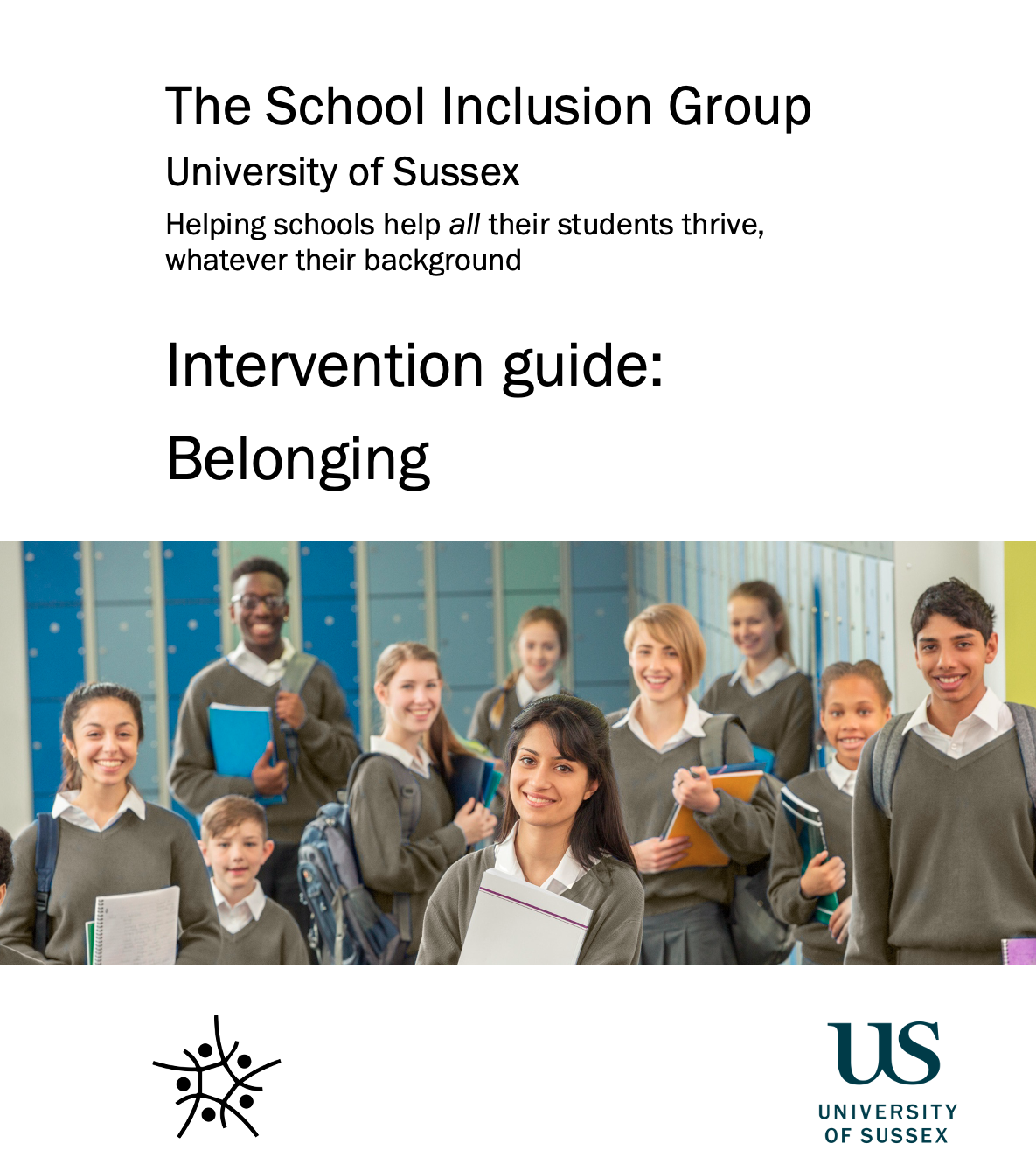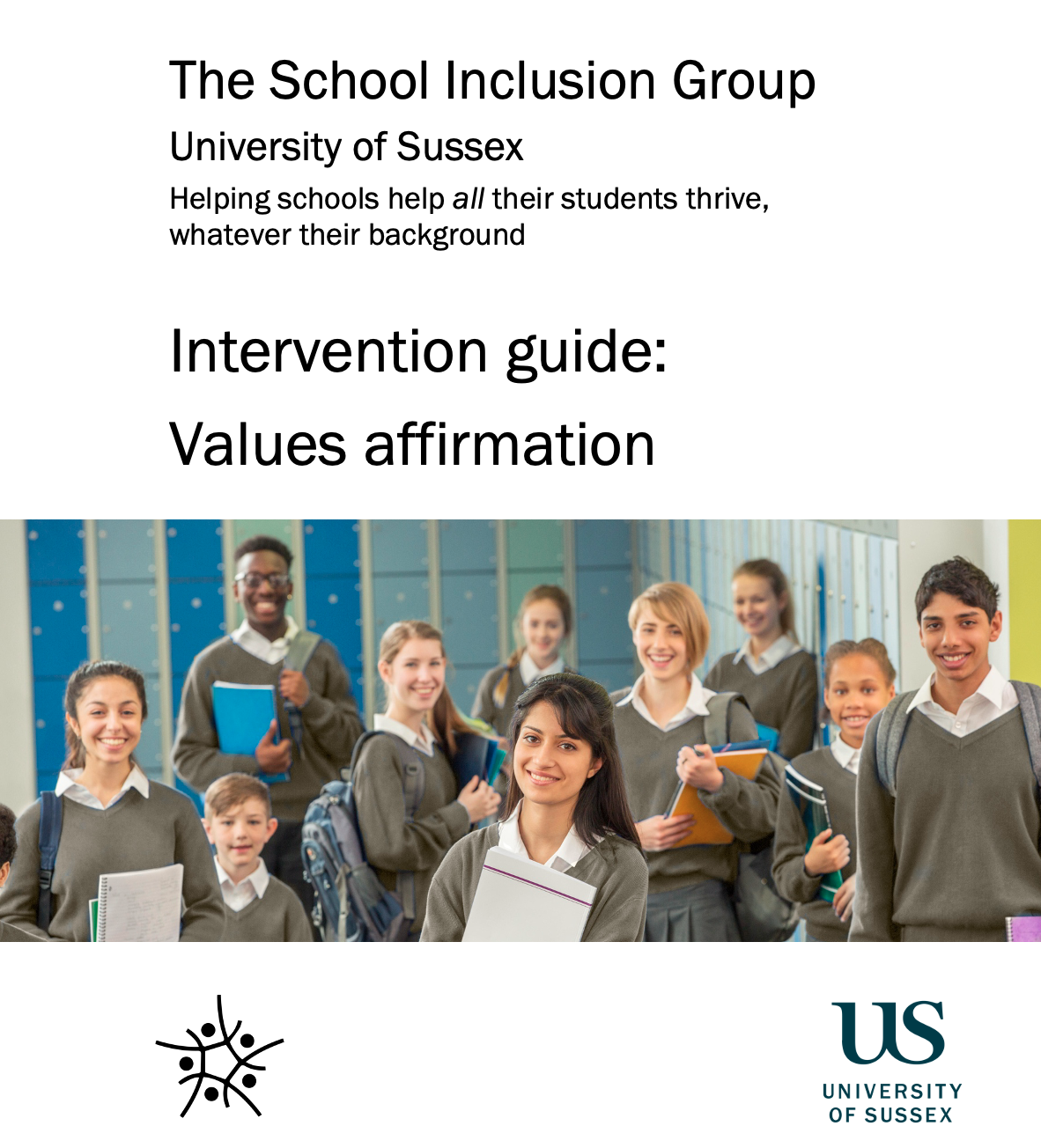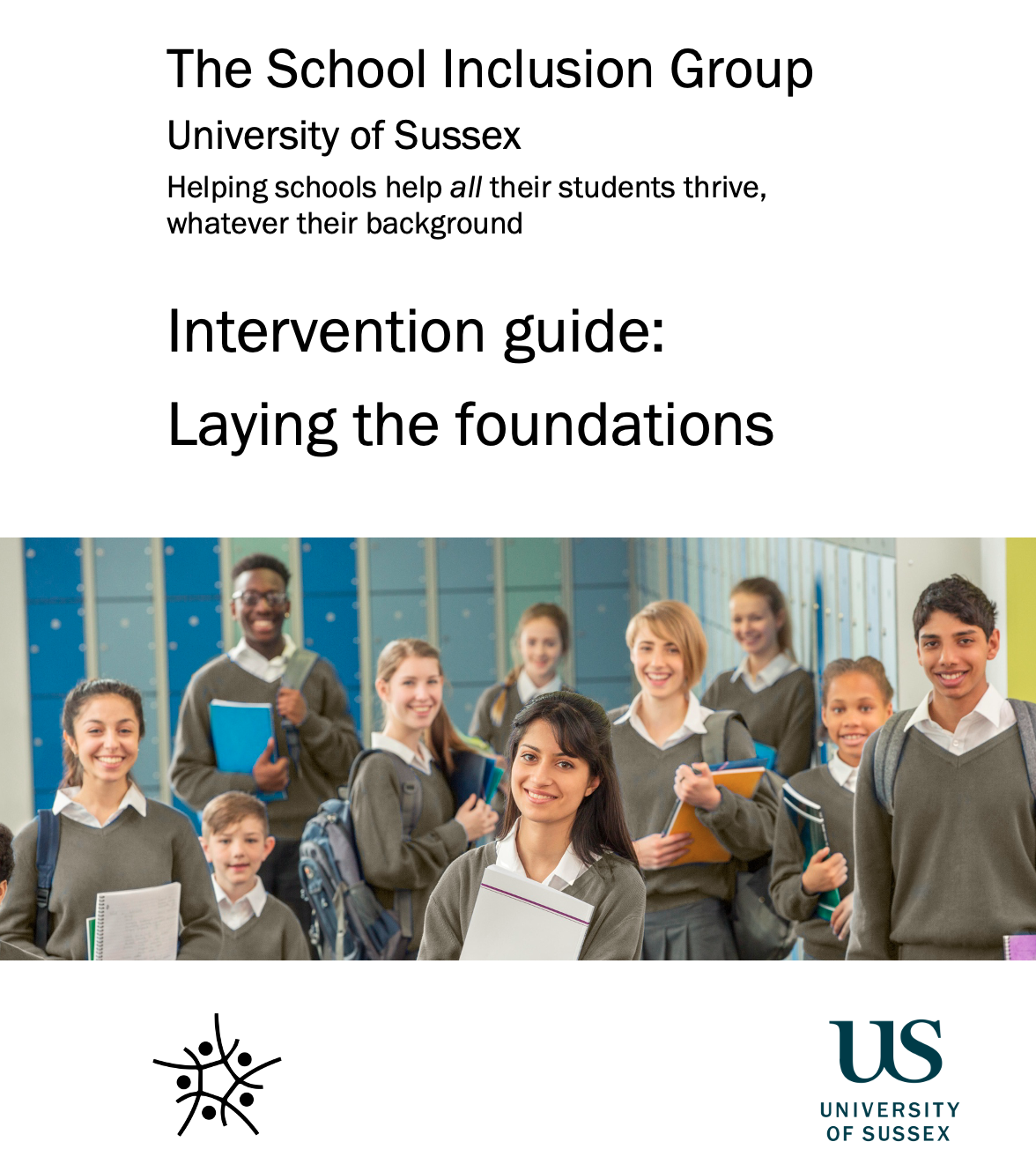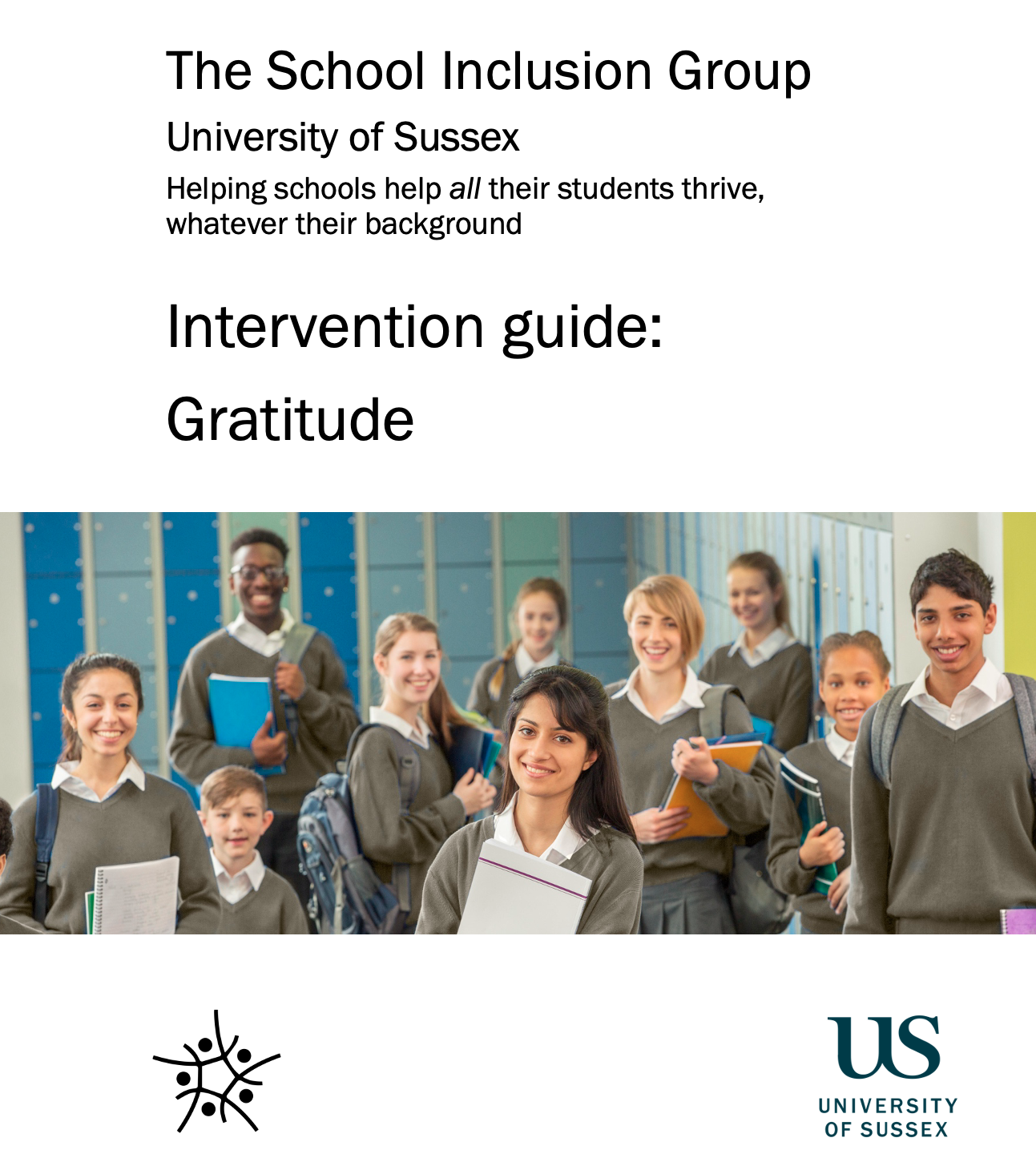Toolkit
This toolkit is aimed at school practitioners who have attended one of our workshops in person. If you haven’t attended a workshop and would like to know more, then please contact us.
We have detailed guides for four interventions — belonging, values affirmation, laying the foundations, and gratitude — below. You can also read very brief overviews of several different interventions and initiatives that we discuss in the workshops by downloading this brief guidance doc.
Intervention guide: Belonging
Unfortunately, many students don’t feel that they fit in at school, and this sense often increases throughout their school career. This intervention guide is aimed at students who are entering a transition phase at school e.g., from Key Stage 1 to Key Stage 2 or from primary to secondary. The interventions aim to help students see that worries about belonging at school are normal, so that they are less likely to construe everyday setbacks as evidence that they do not belong because of their ethnicity, social class, or gender.
Click here to download the additional resources referenced in the guide.
Intervention guide: Values affirmation
Some students believe that people like them—people from families, neighbourhoods, or communities like theirs—are generally thought of as unintelligent and academically incapable. They feel that people like them are expected to fail at school. This can be a highly threatening experience and impede their ability to perform to their full potential. Values affirmation is a technique aimed at helping such students see this threat in a wider context and so feel more confident and perform better.
Click here to download the additional resources referenced in the guide.
Intervention guide: Laying the foundations
Secure and positive relationships with their teachers can provide students with the freedom to engage constructively in school life, increasing their attendance and resulting in more positive behaviour at school. Laying the foundations interventions are based on the idea of helping both teachers and students discover things about the other that they wouldn’t otherwise have known. This can improve relationships between teachers and students by helping students feel more valued, reducing any biases that teachers might have in relation to some students or groups of students, and providing teachers with a starting point for conversations.
Click here to download the additional resources referenced in the guide.
Intervention guide: Gratitude
Many students, particularly those who face social or academic challenges, find that their attention naturally focuses on difficulties and setbacks rather than the positive aspects of school life. When this way of thinking continues over time, it can make students feel more stressed, frustrated, and less interested in school. Gratitude interventions redirect students’ attention towards sources of support and kindness, helping them recognise that their lives are shaped by care, effort, and connections. This awareness builds resilience, belonging, and positive emotion, all of which support engagement and wellbeing.
Copyright © 2025. The School Inclusion Group, University of Sussex. All rights reserved.




